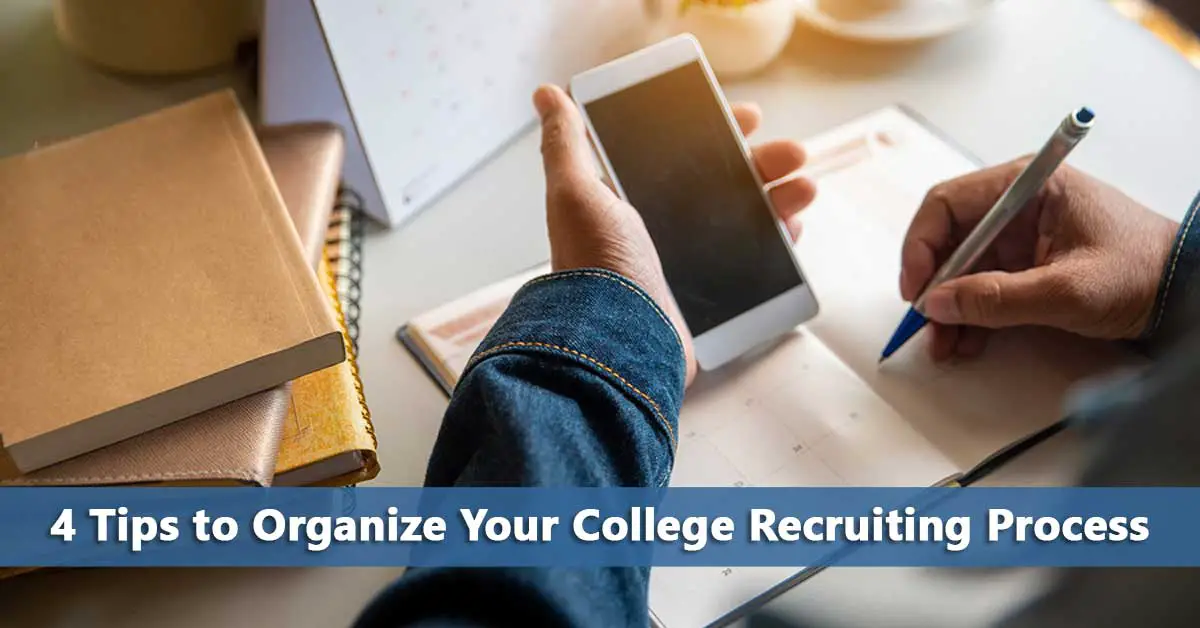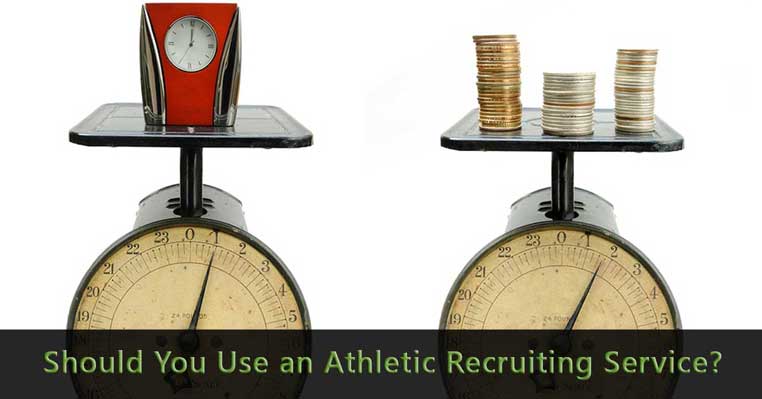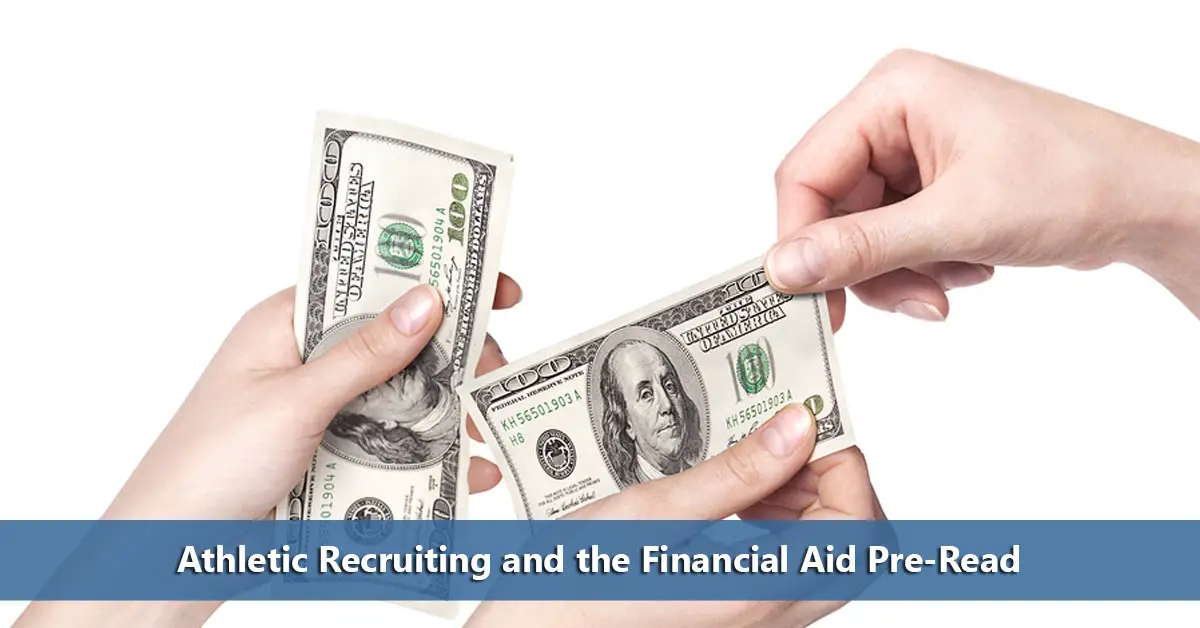 I’m always amazed at how little players and their families know about athletic scholarships. Given that most of them have been justifying playing their sport for the chance at a college scholarship since middle school, you would think they would be better informed. Depending on the sport and division, scholarships can be very limited. It’s kind of like someone planning a trip to Europe and not realizing they need a passport for traveling. Yes, some of the stuff people are missing is pretty basic.
I’m always amazed at how little players and their families know about athletic scholarships. Given that most of them have been justifying playing their sport for the chance at a college scholarship since middle school, you would think they would be better informed. Depending on the sport and division, scholarships can be very limited. It’s kind of like someone planning a trip to Europe and not realizing they need a passport for traveling. Yes, some of the stuff people are missing is pretty basic.
Soccer
4 Simple Tips to Organize the Recruiting Process
 College athletic recruiting is a process of narrowing down school choices while collecting increasingly detailed information about those choices and not losing track of where you are during the process. Piece of cake-right! The problem is that athletes won’t always be at the same stage in the recruiting process for every college they’re considering. One school may be at the “received a mass email flyer for a summer camp” stage while another is at the “scheduling an official visit” stage. So how do you keep track of everything? Here are four ways to organize the recruiting process.
College athletic recruiting is a process of narrowing down school choices while collecting increasingly detailed information about those choices and not losing track of where you are during the process. Piece of cake-right! The problem is that athletes won’t always be at the same stage in the recruiting process for every college they’re considering. One school may be at the “received a mass email flyer for a summer camp” stage while another is at the “scheduling an official visit” stage. So how do you keep track of everything? Here are four ways to organize the recruiting process.
Should You Use an Athletic Recruiting Service?
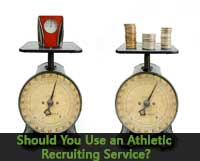 As students and parents start to wade into the college athletic recruiting process, they’ll soon see all kinds of advertisements, websites, and offers from athletic recruiting services. All promise to help you with getting an athletic scholarship because, they’ll tell you, they have access to people and information that you don’t. And as the wading starts to feel like drowning as parents begin to realize how much college costs and how many colleges are actually out there, paying for a recruiting service doesn’t seem like such a bad idea.
As students and parents start to wade into the college athletic recruiting process, they’ll soon see all kinds of advertisements, websites, and offers from athletic recruiting services. All promise to help you with getting an athletic scholarship because, they’ll tell you, they have access to people and information that you don’t. And as the wading starts to feel like drowning as parents begin to realize how much college costs and how many colleges are actually out there, paying for a recruiting service doesn’t seem like such a bad idea.
Is it?
51 Questions to Ask College Coaches on College Recruiting Visits
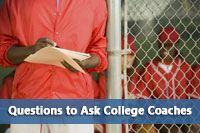 The following is a list of questions to ask college coaches during in an interview whether on a college visit, at a game, or at a camp. These questions won’t be relevant for all sports or all colleges. For example, D3 colleges do not give out athletic scholarships so there’s no point in asking about them. Some questions may be more appropriate for a second visit than a first visit. After all, if a coach is just meeting you for the first time, he probably can’t rank you among recruits for specific positions.
The following is a list of questions to ask college coaches during in an interview whether on a college visit, at a game, or at a camp. These questions won’t be relevant for all sports or all colleges. For example, D3 colleges do not give out athletic scholarships so there’s no point in asking about them. Some questions may be more appropriate for a second visit than a first visit. After all, if a coach is just meeting you for the first time, he probably can’t rank you among recruits for specific positions.
How Many Colleges to Target to Play College Baseball
 50–that’s the number of colleges you should target if you’re interested in getting to play college baseball at the college level. Too many? Think I might be exaggerating a little? Or maybe I don’t have a clue as to what I’m talking about? Give me a moment and I’ll explain my madness.
50–that’s the number of colleges you should target if you’re interested in getting to play college baseball at the college level. Too many? Think I might be exaggerating a little? Or maybe I don’t have a clue as to what I’m talking about? Give me a moment and I’ll explain my madness.
What You Need to Know About Verbal Commitments
 If you’re looking to play college athletics, you can’t help but hear about verbal commitments. And if you’re pursuing an athletic scholarship, chances are that you’ll be making a verbal commitment yourself. Plenty of powerhouse schools expect athletes to verbally commit long before the National signing day. So the sooner you can make a verbal commitment, the better–right? The question is better for whom?
If you’re looking to play college athletics, you can’t help but hear about verbal commitments. And if you’re pursuing an athletic scholarship, chances are that you’ll be making a verbal commitment yourself. Plenty of powerhouse schools expect athletes to verbally commit long before the National signing day. So the sooner you can make a verbal commitment, the better–right? The question is better for whom?
Create a Recruiting Video with Your Phone in 5 Easy Steps Resource Center
 (Updated 2021) If you’re an athlete trying to get recruited to play in college, then you KNOW you need to have video. You have several options for creating your video from doing-it-yourself to hiring someone who specializes in recruiting videos. I’m a big believer in starting with the cheapest option first. If nothing else, after you create a video with your phone, you will appreciate that much more the professional’s product that you eventually get. So I’ve collected a list of resources you can use to shoot video with your smart phone. (I may receive a small commission for some of the products.)
(Updated 2021) If you’re an athlete trying to get recruited to play in college, then you KNOW you need to have video. You have several options for creating your video from doing-it-yourself to hiring someone who specializes in recruiting videos. I’m a big believer in starting with the cheapest option first. If nothing else, after you create a video with your phone, you will appreciate that much more the professional’s product that you eventually get. So I’ve collected a list of resources you can use to shoot video with your smart phone. (I may receive a small commission for some of the products.)
Best Way to Answer Coaches Asking What Other Schools Are Recruiting You
 Once again honesty is the best policy. When coaches ask what other schools are recruiting you, just name the schools. There are actually two ways to be dishonest in answering the question. The first is to not tell which schools are recruiting you and the second is to lie about which ones are. Understanding why you shouldn’t do the former explains why some are tempted to do the latter.
Once again honesty is the best policy. When coaches ask what other schools are recruiting you, just name the schools. There are actually two ways to be dishonest in answering the question. The first is to not tell which schools are recruiting you and the second is to lie about which ones are. Understanding why you shouldn’t do the former explains why some are tempted to do the latter.
Why Athletic Prospects need the Financial Aid Pre-Read
 Athletes need to know about financial aid pre-reads since one third of colleges do not offer athletic scholarships. At institutions that do offer scholarships, most sports are equivalency sports meaning that athletes are likely to receive only partial scholarships, if any at all. This means that the availability of non-athletic financial aid is an important consideration for most college athletes.
Athletes need to know about financial aid pre-reads since one third of colleges do not offer athletic scholarships. At institutions that do offer scholarships, most sports are equivalency sports meaning that athletes are likely to receive only partial scholarships, if any at all. This means that the availability of non-athletic financial aid is an important consideration for most college athletes.


